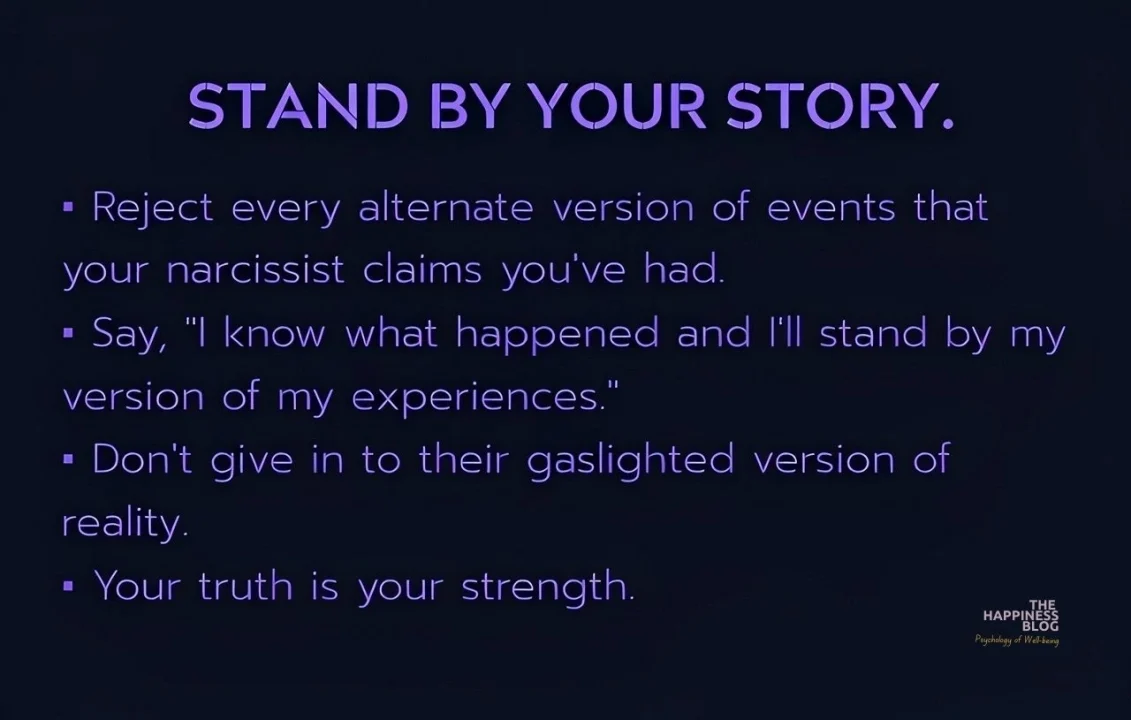Today's Sunday • 5 mins read
— By Dr. Sandip Roy.
Narcissists thrive on drama and control.
Your emotional outbursts feed the narcissist’s need for chaos.
So, they study your reactions like scientists, figuring out which buttons to push to make you explode. And when you give into the emotional drama, they quickly shift the blame, saying you’re unstable.
Here are eight ways to stay centered when a narcissist tries to trigger you:
1. Recognize Their Triggers Are Intentional
Those provocative comments aren’t accidents. The narcissist carefully selects words designed to destabilize you. If you didn’t know, they are masters of serving you word salad.
- Notice how they bring up sensitive topics in public where you can’t respond freely.
- Watch how they time their offensives, often when you’re already stressed or tired.
- Spot how quickly they switch tactics when one approach doesn’t get a reaction.
Their strategy depends on your predictable response.
Knowing this pattern helps you see the manipulation for what it is: a calculated attempt to control your emotions. Label it silently when it happens:
“This isn’t personal conversation. It’s emotional fishing.”

2. Prepare Mental Scripts In Advance
Always remember, you always have a choice:
- Step into the storm. Engage, react, and feed their drama. Choose this, and you’ve already lost; their chaos becomes your burden.
- Sidestep the trap. Recognize the game and refuse to play. Select this, and something remarkable happens: You keep your calm and reclaim your power.
Better yet, don’t wait until you’re triggered to figure out your response. Create simple phrases you can use when emotions run high.
- “Let’s discuss this later when we’re both calmer.”
- “I need to think about that before responding.”
- “I understand you see it differently.”
Rehearse these lines until they become automatic. Your prepared responses create breathing room between their provocation and your reaction.
The narcissist wants an escalating drama. Your scripted calm frustrates their plan.
3. Practice Strategic Disengagement
Learn to recognize when conversations turn toxic. Set internal alarms for circular arguments, character smearing, or history rewrites.
When these patterns emerge, disengage without announcement. Walk away physically if possible. Change the subject firmly if leaving isn’t an option.
This isn’t about winning the argument. It’s about refusing to participate in emotional manipulation.
Your attention is currency. Stop paying them with your reactions.
Could you not give them the drama they came for?
4. Master The Blank Face
Develop a neutral expression that reveals nothing.
Narcissists learn to read micro-expressions while hunting for emotional feedback. Deny them those.
Practice keeping your face calm, even when your thoughts race. Control your breathing. Relax your shoulders. Maintain comfortable eye contact without staring.
Think of your face as a mask protecting your true feelings. What they can’t see, they can’t exploit.
The narcissist wants your visible distress. Give them nothing to work with.
5. Become Boring When Targeted
When offended, respond with minimal emotional energy. Keep answers brief. Use a neutral tone. Provide factual responses without defending yourself.
- “I hear what you’re saying.”
- “Yes, that happened.”
- “No, I don’t agree.”
- “Okay.”
Drain all emotion from your voice. Speak slightly slower than usual. This technique is called “gray rocking.” It makes it unrewarding for the narcissist to interact with you.
They want emotional fireworks. Please give them a blank wall instead.
6. Use Silent Observation
When the narcissist performs their drama, mentally step back. Observe their tactics as if studying an interesting specimen.
Note their predictable patterns. Watch how they escalate when not getting desired reactions. Recognize the desperation behind their attempts to provoke you.
This detached perspective protects your emotional state. You’re no longer in the interaction—you’re watching it unfold.
Their manipulation loses power under calm observation.
Know more about your narcissist. Find out the 7 strange behaviors of covert narcissists!
7. Protect Your Reality
Narcissists excel at distorting facts. They rewrite history so convincingly that you question your own memory.
Keep private records of important conversations. Trust your recollection of events. Connect with others who can verify your experiences.
When they claim “that never happened” or “you’re overreacting,” hold firm to your truth without arguing. Simple phrases protect your reality:
- “I remember it differently.”
- “We see this situation differently.”
- “I’m comfortable with my understanding of what occurred.”

Your reality isn’t up for debate. Stand in it quietly.
8. Refuel Away From Their Presence
Interactions with narcissists drain your emotional reserves. Discover the 10 reasons why narcissists are so draining.
Plan regular escapes to environments where you can be authentic.
Create sacred spaces—physical or temporal—where the narcissist has no access. Guard these boundaries fiercely.
Connect with people who see and value the real you. Engage in activities that restore your energy and perspective. Be the “you” that is not an image in their distorting mirror.
Your sense of self needs regular reinforcement.
Final Words
Keeping your poise around a narcissist isn’t about winning their approval. It’s about protecting your emotional sovereignty.
Ultimately, you must break the trauma bond with your narcissist and build a life building beyond their influence.
The moment you see the manipulation for what it is, their grip weakens. The storm rages, but you’re no longer in it.
Their chaos stops at the boundaries of your chosen response. You keep your calm.
• • •
√ Also Read: 10 Toxic Things That Covert Narcissist Mothers Say
√ Please share it with someone if you found this helpful.
» You deserve happiness! Choosing therapy could be your best decision.
...
• Disclosure: Buying via our links earns us a small commission.